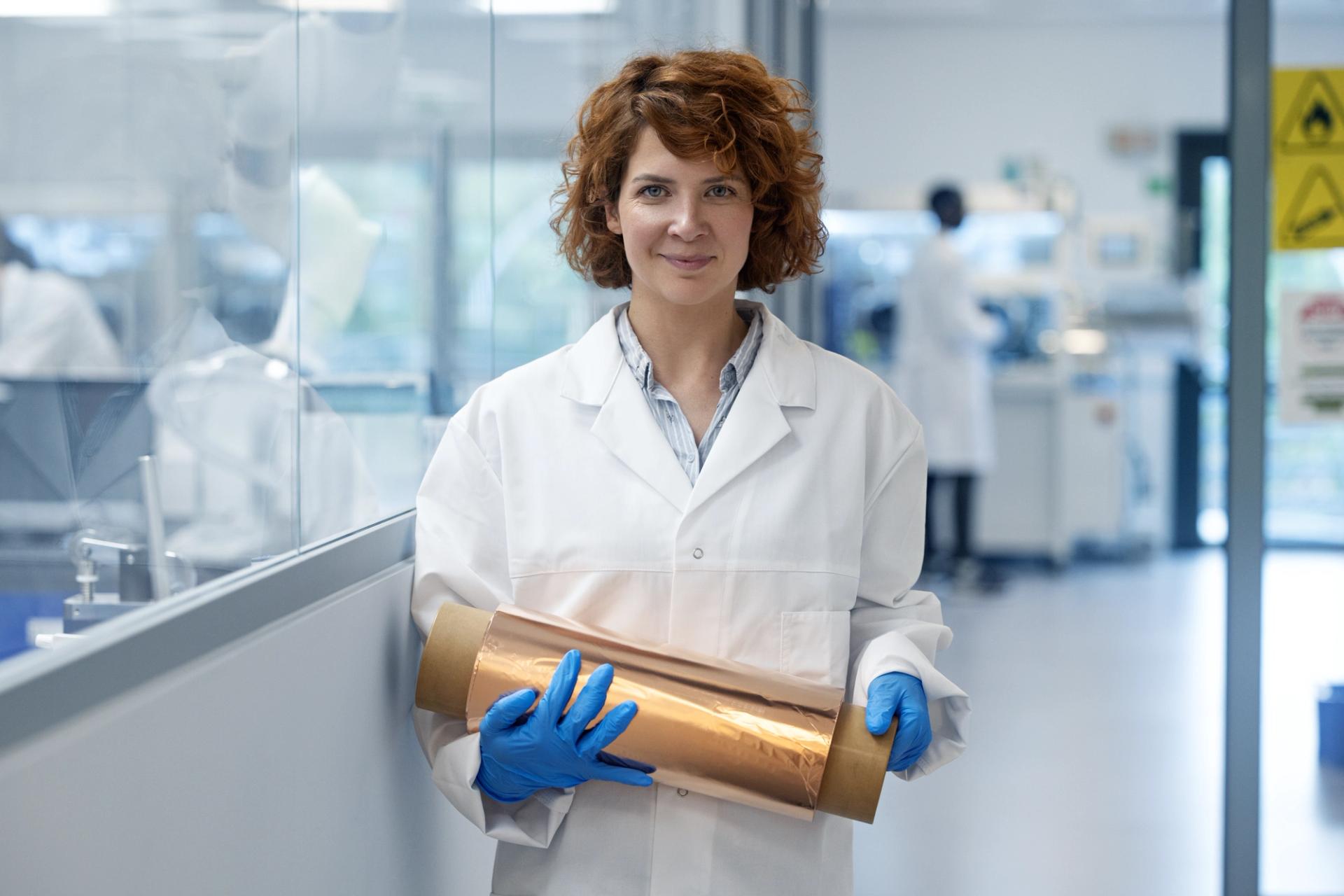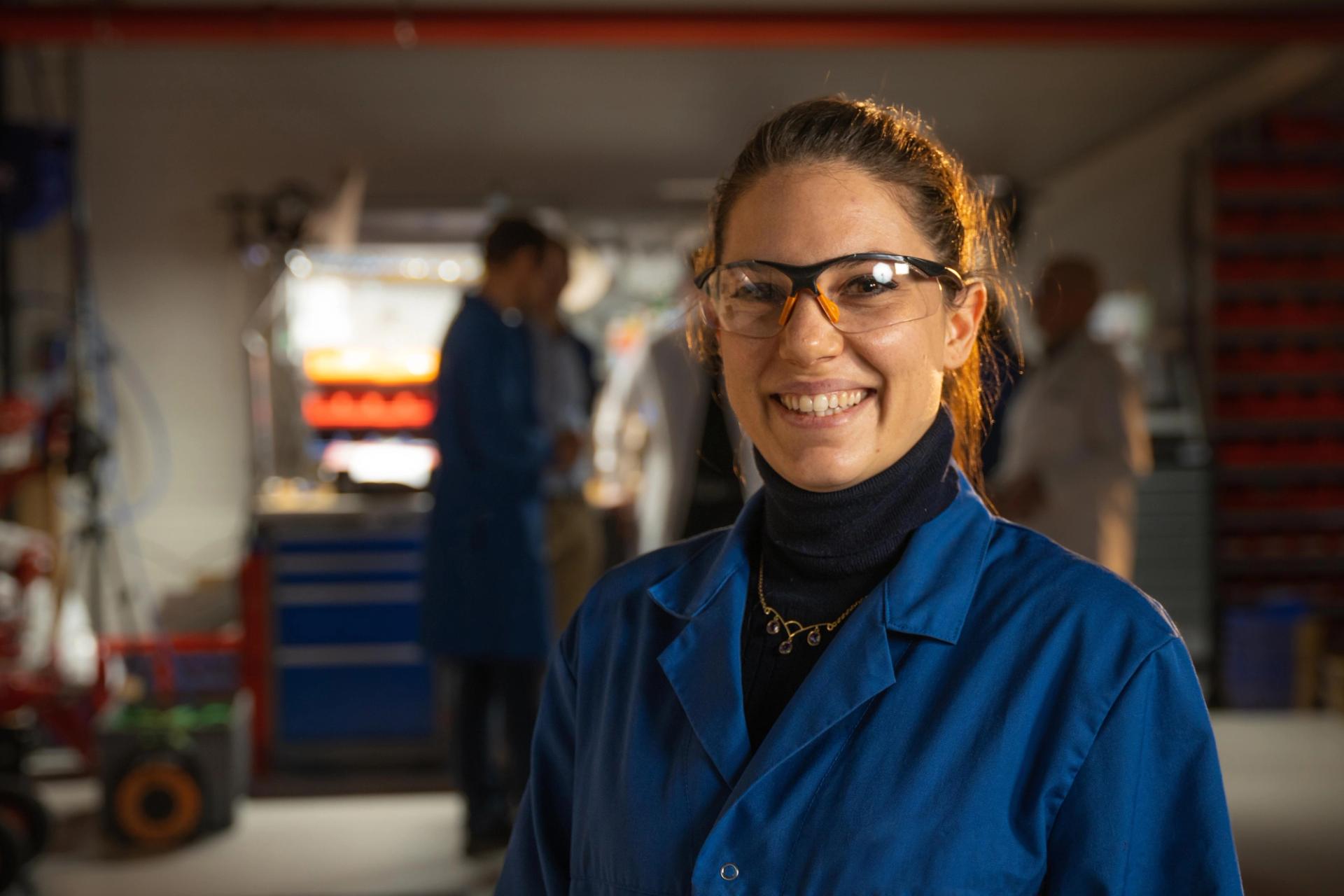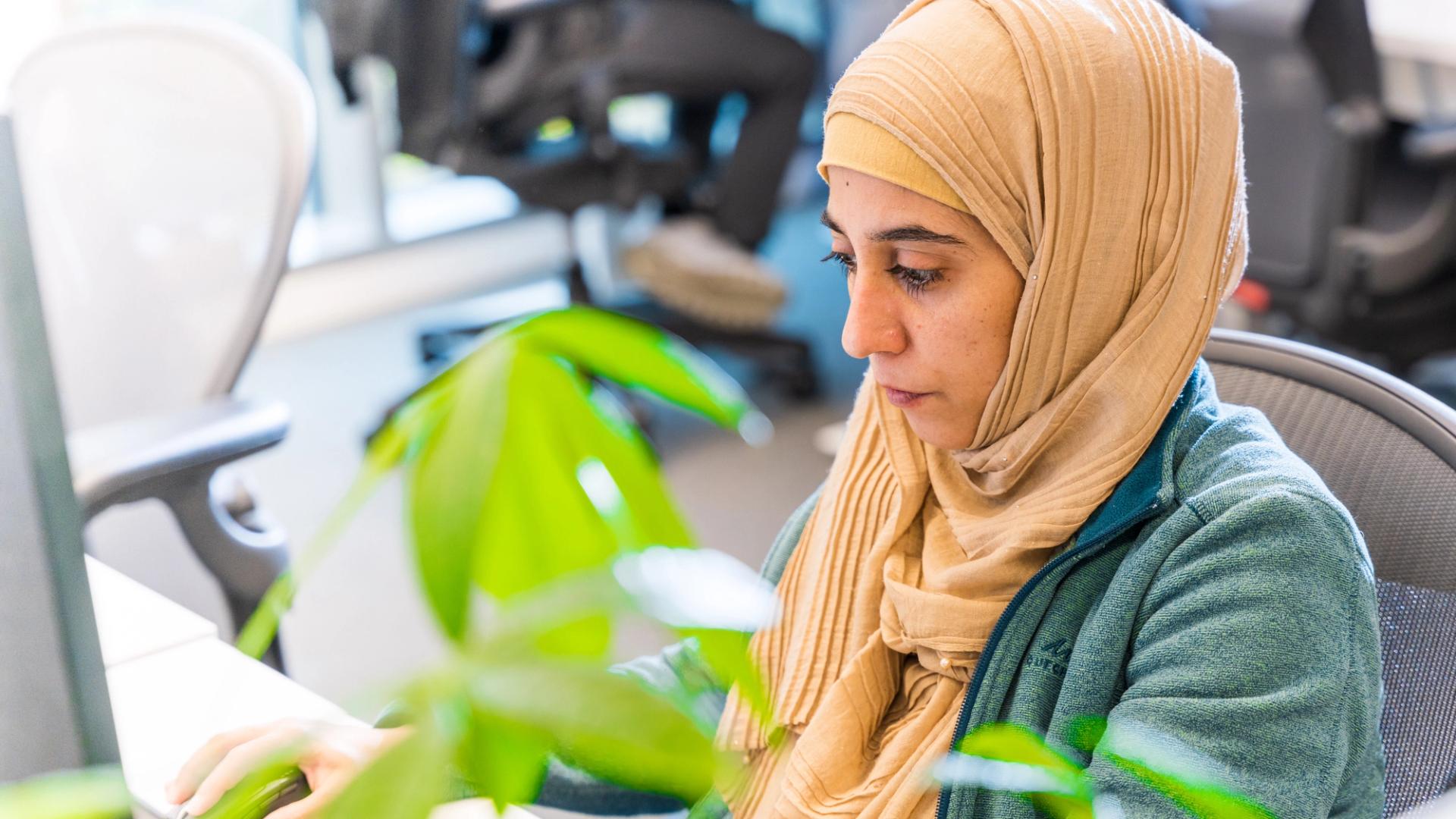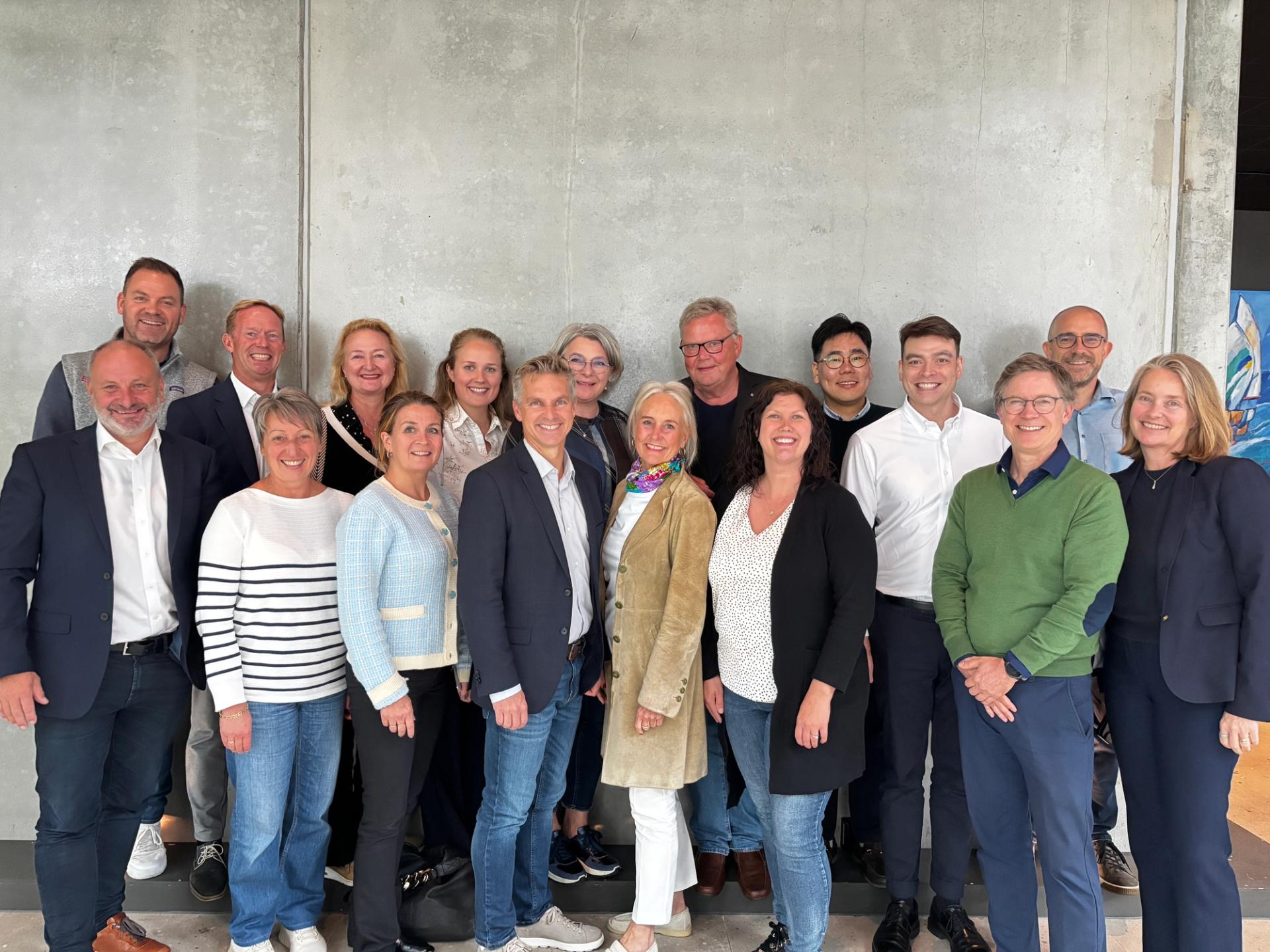
International women scientists thrive in the Norwegian battery industry
Published 12 Sep 2023 (updated 11 Feb 2026) · 5 min read
Why do women scientists from abroad love working in Norway?
Because the Norwegian battery industry has the magical combination for career success: gender equality, work-life balance and cultural diversity. “Follow your dreams, and Norway can help you achieve them,” says Surabhi Gupta, research scientist at Morrow Batteries.
Many women like Gupta are making their mark in the Norwegian battery industry, where the gender distribution rivals any STEM industry in the world. Morrow Batteries, for example, employs about 40 per cent women and 60 per cent men. Yet for women scientists, Norway is not often on their global job-hunting radar. It should be.
Norway offers more varied, hands-on experience
Norway’s battery industry is still maturing. The country has three battery cell manufacturers – all of them new, innovative and green. It also has a complete battery value chain. This provides a unique opportunity for battery scientists globally, regardless of gender.
Editor’s note: Norway now has two battery cell manufacturers. In 2025, FREYR Battery rebranded as TI Energy and moved its headquarters to Austin, Texas.
“Those already working in Norway love it because they get to work closer with the technology. They can be more ‘hands-on’ and their voices are heard more easily compared to larger companies,” says Nora Rosenberg Grobæk, former head of batteries at Invest in Norway, the official investment promotion agency of Norway.
“Norway was not a country I had considered before, but then I learned about Beyonder’s pioneering work with sawdust in battery cell production. This piqued my curiosity. Using abundant, renewable wood is a brilliant idea. I believe I can have an impact here,” she says.
“Follow your dreams, and Norway can help you achieve them”
Surabhi Gupta
Research Scientist at Morrow Batteries

Green battery industry attracts the ethically motivated
Like the other women, Ayse Gul finds meaning in working towards goals bigger than herself. Born in Turkey, Gul is formerly senior quality management engineer at FREYR Battery. As a promising young scientist, she was chosen as an ECLIPSE intern by the American Society of Mechanical Engineers.
Editor’s note: Ms Gul left her position at FREYR Battery in 2024 and is now Quality Manager at the Norwegian PEM electrolyser company Hystar.
“I started my career in oil and gas, but I wanted to switch to a green industry,” says Gul. “After considering other job offers in Europe, I chose to work at FREYR in Norway. I know that here my contributions will make a difference in the world. It isn’t only about my own career.”
Gul also appreciates the environment around the industry, noting that universities, companies and the government all work together to make battery technology more sustainable and, ultimately, circular – from production to recycling and reuse.
Gender equality pervades the workplace
Norway ranks third in the world in gender equality, having closed over 86 per cent of its gender gap, according to the World Economic Forum. Not surprisingly, then, good gender equality is a hallmark of the Norwegian battery industry.
“Women have a high level of autonomy in our industry,” confirms Rosenberg Grobæk.
While still not perfect, gender equality is a value so ingrained in Norwegian society that it almost seems to be taken for granted.
“Honestly, I haven’t seen any gender inequality in Norway. People respect each other regardless of gender, and I feel this connects me to their culture,” says Gupta, who is originally from India. She has a PhD in materials science from Japan and holds five national and international patents.
Adriana Navarro-Suárez of Colombia agrees. “In Norway, equality between the genders is a given. This is apparent when conversing and collaborating,” she says. Navarro-Suárez, R&D Manager at Morrow Batteries, knows what she is talking about. Among her accomplishments, she has served in leadership roles to promote women in science globally, leading to her nomination for a Women That Build award.

Multiculturalism is the new normal
On the flipside, what Norway is NOT well known for is its cultural diversity. Historically, weather and geography have kept the country relatively isolated, and thus homogenous by global standards. But the battery industry is busting the myth of homogeneity by recruiting the best talent from around the world.
“Morrow Batteries is multicultural by nature. Scientists are diverse as a group, and the battery field is a global industry,” says Navarro-Suárez. “I was worried coming to a small town that I wouldn’t feel comfortable. But 25 nationalities are represented at Morrow, and everyone speaks English. We have created a friendly environment where everyone’s opinions are appreciated.”
Gul shares, “I have Norwegian friends and international friends. It’s great being part of an international landscape where everyone is working towards one goal,” she shares.
Battery industry takes care of the whole person
Known for its pro-labour laws, Norway consistently ranks among the top countries in the world for work-life balance. As Pires says, “In Norway, we are not a slave to our work. No company wants tired, stressed out employees.”
This is not the reason why Gupta chose to work in Norway, but she has quickly come to appreciate the benefits. “Norway has an outstanding and friendly ecosystem to sustain both your personal and your professional life,” she says.
She is particularly impressed with Norway’s generous parental leave policy, which she may take advantage of someday. She and her husband, an R&D manager, moved to Norway together when they both received job offers from Morrow. Like Beyonder and FREYR, Morrow gave them expert assistance with relocating and settling in when they first moved.
Navarro-Suárez emphasises the peace and quiet of small town Norway. “Your way of life stops being so stressful,” she says.
Along the same lines, Gul highlights Norway’s outdoor life: “There is beautiful nature to explore. Lots of skiing and hiking and other outdoor activities.”
For Pires, Norway has grown near and dear to her heart, despite the cool, northern climate. “People in Norway are open minded. Communication is easy, the country is beautiful, and the nature is amazing. It’s magical here,” she concludes.


Words of advice for women scientists considering working in Norway
“During job interviews, ask how the company will help you to get settled. The more help you get, the more you can ease yourself into your new life. Then get to know your company and build a life. ”
Ayse Gul
Turkey
“Be open to a new culture. If you like nature and work-life balance, Norway is a great place to come. Keep your eye on positions that open up in the Norwegian battery industry. ”
Adriana Navarro-Suárez
Colombia
“Be ambitious. You have to go and get it. Be natural. If you are passionate about your work and life, you will find an extremely encouraging and supportive environment in Norway. ”
Surabhi Gupta
India
“Don’t hesitate to apply. If you want to evolve in your career, but you also want to raise a family, you can do both in Norway. You don’t have to choose ”
Julie Pires
France


